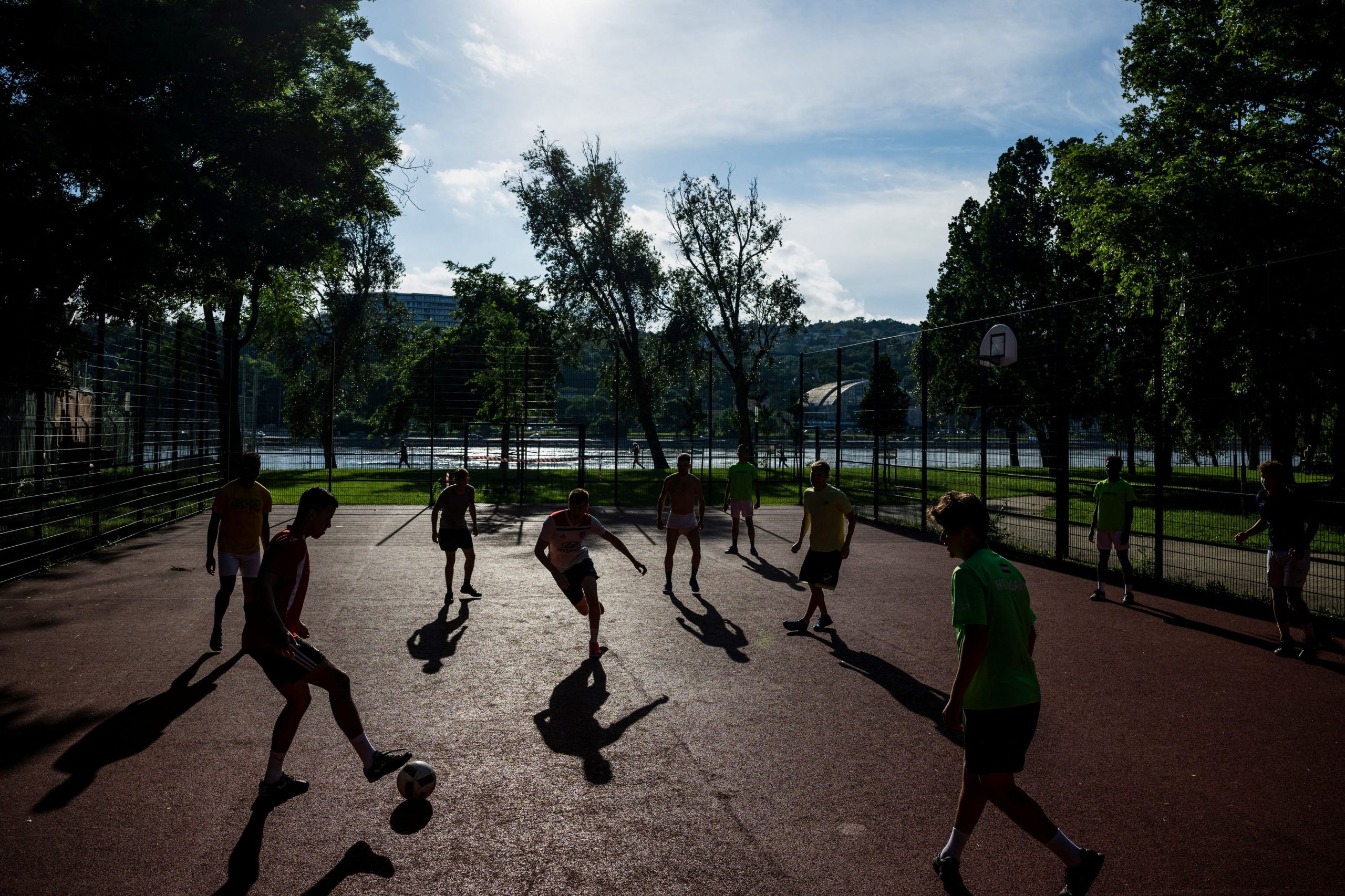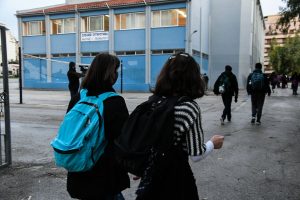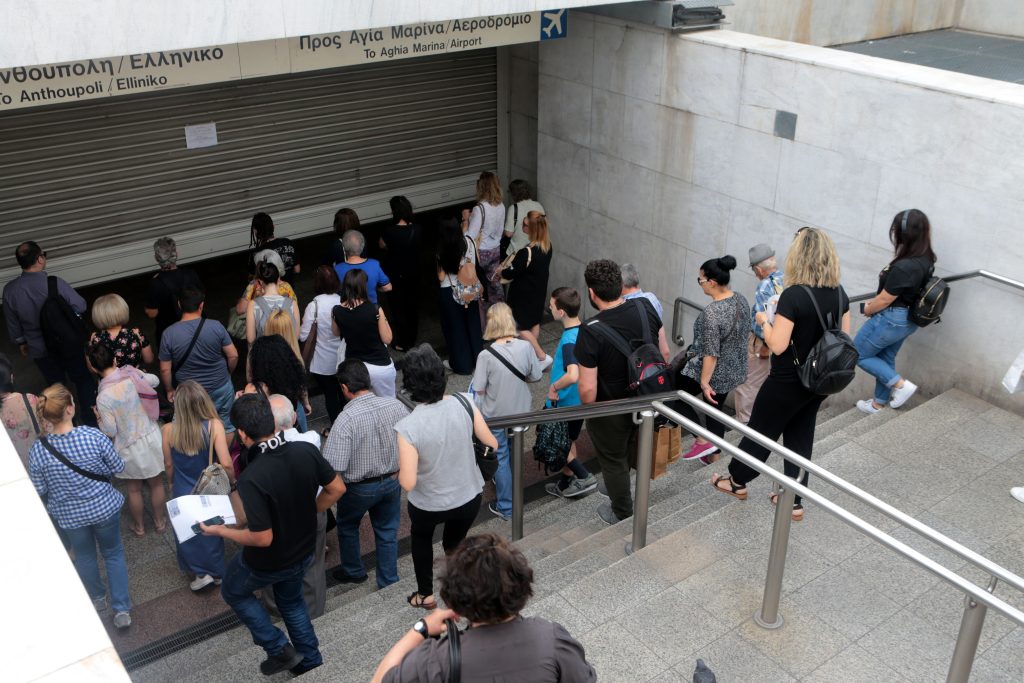For the past weeks Greek media has been awash with alarming stories about teenagers beating each other up. These stories are usually accompanied with video, captured by the teens themselves, showing groups of young people assailing one person or another with kicking, punching, and hair pulling. A video last last month showed a fight between minors outside a school complex in the east Athens district of Pagrati. Another highly disturbing video showed a 14-year-old teen girl was beaten by a group of peers in the coastal Glyfada district, with the latter incident leading to arrests and intense media scrutiny. At the end of September, a Thessaloniki court convicted a teen of assaulting another teen, while days later in Volos a video surfaced of 16-year-old who forcibly had his head shaved and had several teeth broken by other juvenile deliquents.
These disturbing videos, often posted first on TikTok, have prolifically been aired by news programs, and been analyzed on all news sites. Headlines warn that youth violence is on the rise. Calls have been made for swift and harsher ramifications for parents, and interventions in schools.
Greek Prime Minister Kyriakos Mitsotakis himself commented on the violence and its online fora, noting that it is a more pronounced problem now that schools are back in session.
“We will be very concerned,” he stated before the cabinet, “with issues relating to social networking platforms, how digital violence is linked to real violence and how bullying is now acquiring a clear digital footprint, but also with issues relating to the mental health of children and adolescents.”
Minister of Citizen Protection Michalis Chrisochoidis argued that the problem is snowballing, stating that in 2023, Greek Police (EL.AS) arrested 6,150 juvenile offenders, while in 2024 they arrested almost 9,000 – an increase of about 50%.
Yet, according to the available data, teen violence in Greece is not intensifying, and in fact, has likely decreased over the past decade.
According to the 2022 National Survey of Health-Related Behaviors among Adolescent Students, conducted every two years under the auspices of the WHO, teen rates of involvement in violent fights in Greece have decreased year by year. The percentage of adolescents reporting recent involvement in violent fights reached a 20-year low in 2022. Additionally, the rates of violence reported in Greece are at or below the average of countries participating in the same research project internationally.
Incidents of violence and arrest numbers are not precisely related, as there are always incidents that go unreported. However it appears that in previous years arrests for instances of violent crime among minors have also decreased slightly. According to the yearly arrest statistics published by the Hellenic police, in 2023, 923 minors were arrested for crimes of bodily harm, the year prior in 2022, 1040 minors were arrested for the same crime. [Note that due to a difference in the reports, the statistics for 2023 include 18-year-olds, while the statistics for 2022 only include those 17 and under.] The full statistical reports for 2024 arrests are not yet published, and the Ministry of Citizen Protection did not respond to requests for the data regarding this year so far.
“The phenomenon of juvenile delinquency is not a new phenomenon in this society,” said Stelios Stylianidis, a Professor of Social Psychiatry at Panteion University in Athens, and founder of the Scientific Association for Regional Development and Mental Health. “What has increased now, and what is much more visible, is the quality of the violence. Things happen– abuses that are physical, sexual, or psychological– from peers in a very intense sadistic manner. And this sadism is communicated many times as a ‘brag’ on social media.”
Stylianidis warned that in fact, the unrelenting coverage of this violence can lead to further problems: “It cannot be that the media projects the same video over and over of beating or violence,” he told To Vima English Edition. “When this video is reproduced constantly in the media, this gives fodder for the youth to identify, for prototypes either consciously or unconsciously, for a teenager to think, ‘ah look they show this on television, I will do it myself.’”
Yet the coverage of increasing youth violence is a recurring trope the past months. Throughout the summer, a different set of incidents swallowed the news cycle and shocked the Greek public– a 16-year-old girl who attacked another teen with a knife in Piraeus, a boy hospitalized in Thessaloniki after being beaten by his peers, a group of minors arrested for attempted robbery in Kozani. It has been the subject of panels and labeled an increasing problem, decried on television as a “scourge affecting our society.”
“There is a type of ‘moral panic’ which is being cultivated,” Nikolas Christakis, Professor of Social Psychology in the Department of Communication & Media at Athens’ National & Kapodistrian University, told To Vima English Edition. “To present the youths as dangerous and cannibalistic is a very good way to grab the attention of the audience. And it has political and ideological results […] which give to the individual the impression that they live in a world of generalized insecurity, and they rush to the government for solutions.”
The Greek government has suggested several ways to tackle the issues of juvenile delinquency and violence. In March of 2023, then Minister of Education and Religious Affairs, Niki Kerameos announced a bill specifically targeted at school violence and bullying, which involved the hiring of thousands of new psychologists and social workers, a special platform to report violent incidents, and a new set of reporting structures at the school, district, and national level. In January, Chrysochoidis announced a new mobile phone app which could act as a panic button for victims of violence and bullying. In April the ministry announced a new 10201 hotline to receive complaints and provide an “immediate and uniform response to all incidents of violence and juvenile delinquency.”
Both the Minister of Citizen Protection and the Prime Minister have also suggested harsher penal consequences for children and parents. “It seems to me that we need to look again at the penalties under the penal code… for parents the penalties must be toughened,” said Chrysochoidis in an interview with SKAI television channel at the end of September. “When someone is grossly negligent in their custody of a child, I think there should be consequences.” Prime Minister Mitsotakis also suggested the need to “tighten up the penalties.”
Yet Stylianidis suggests that the most effective approach to tackling teen violence in Greece is a multifactor support network that helps teenagers get support and prevents the roots of violence. “The intervention should be to psychologists and educators, it should be individual support if needed, and mostly interschool support,” he said. He listed the need for better-trained school psychologists, mediation support, talks with former teen offenders who could act as mentors, and structures for educators to work with families to support and refer children to mental health services.
“To speak only of the repressive measures is likely an appealing message for a right or far-right audience, but it’s not the priority that the state should focus on,” said Stylianidis. “In what punitive frame do we send a 14-year-old in a prison in a reformatory? We speak for a return to really distant times, to the 1960s. No, we must focus more on what we call community-level work.”









